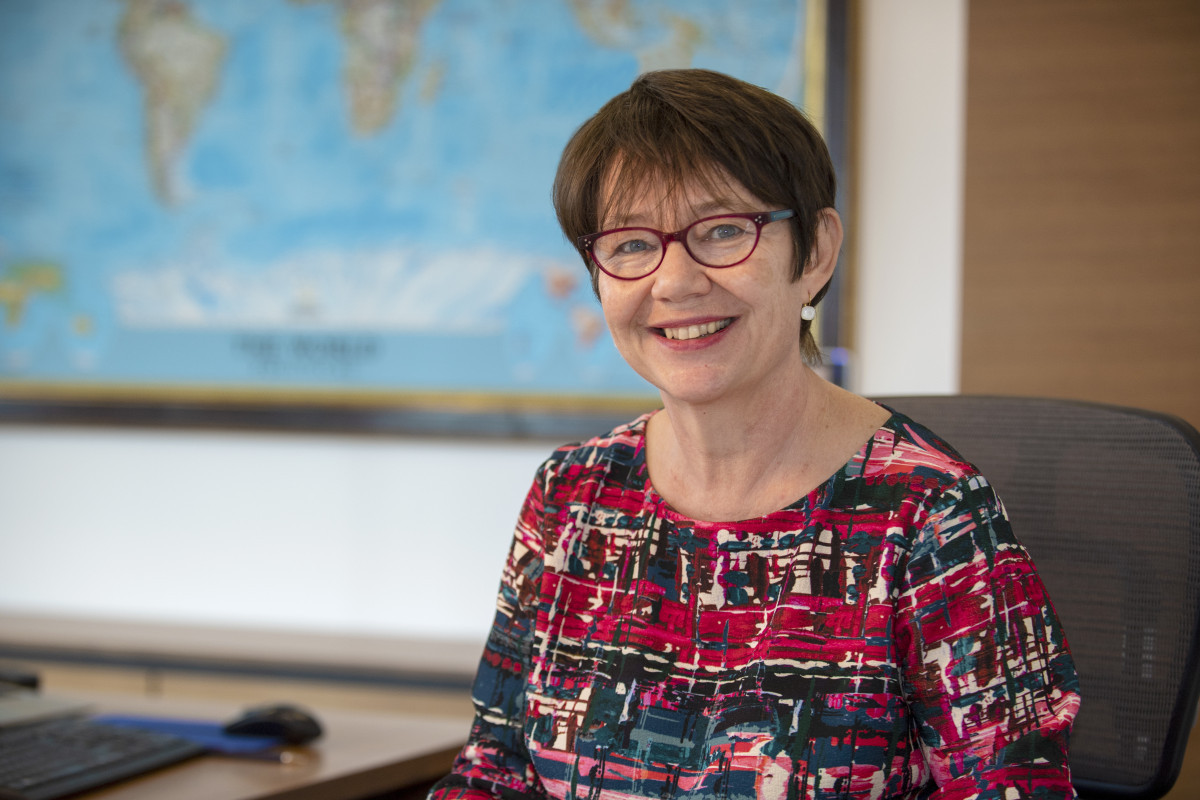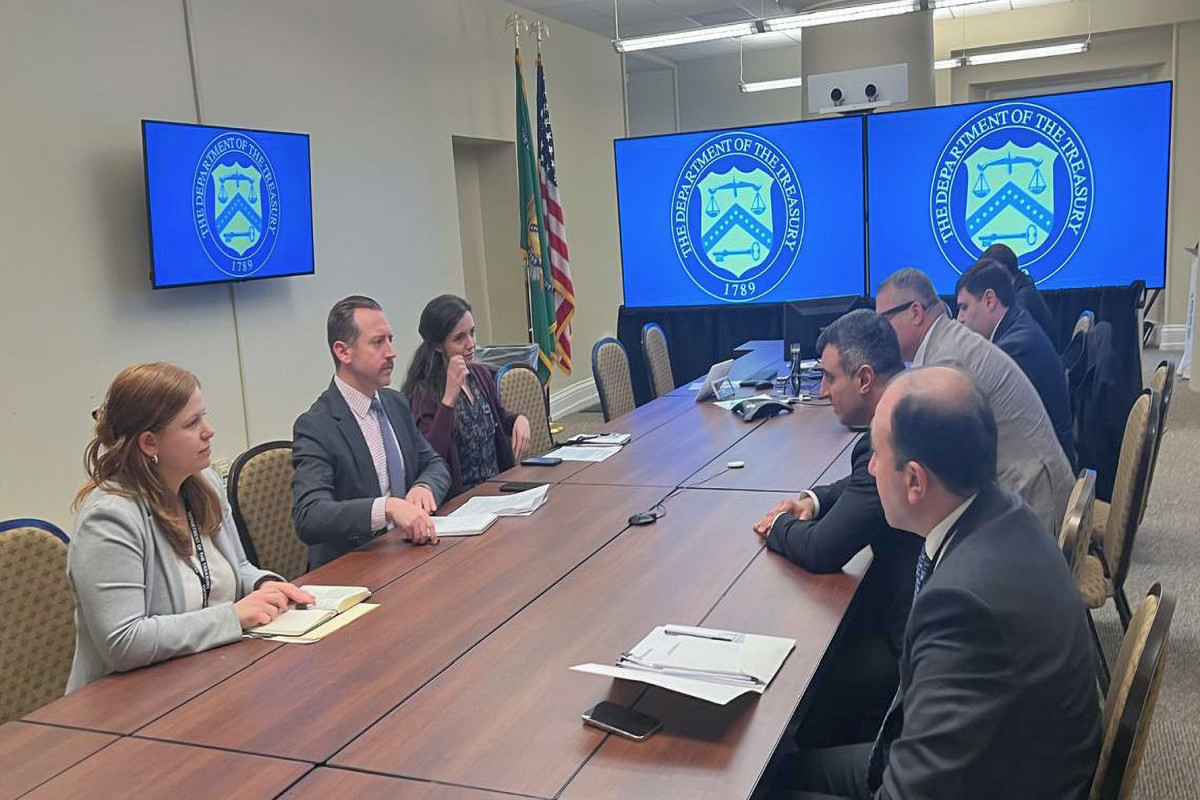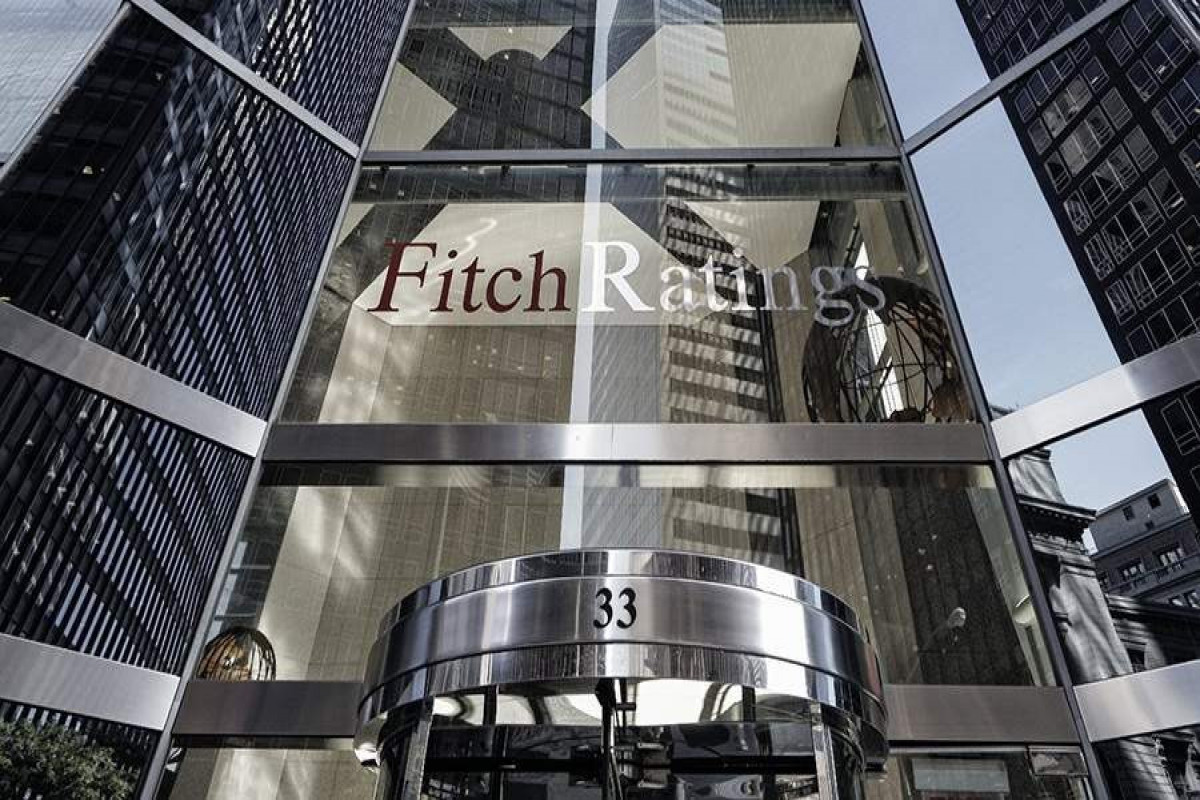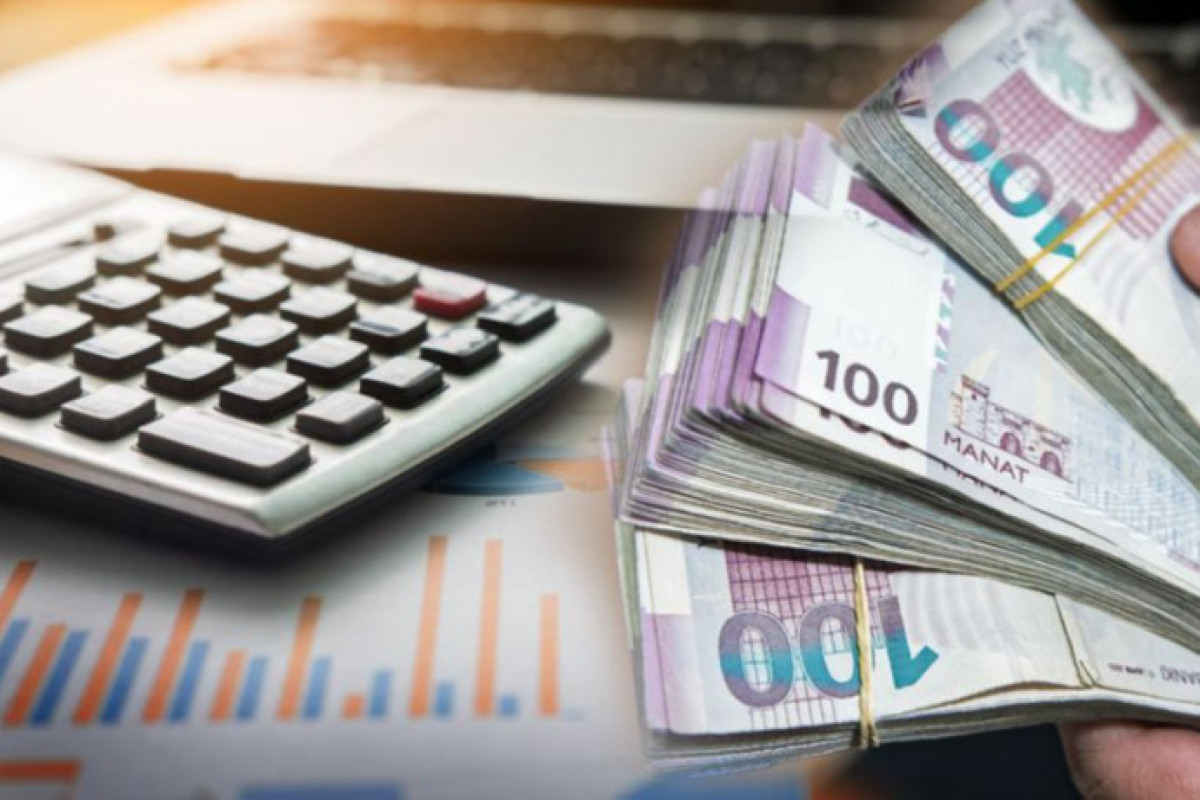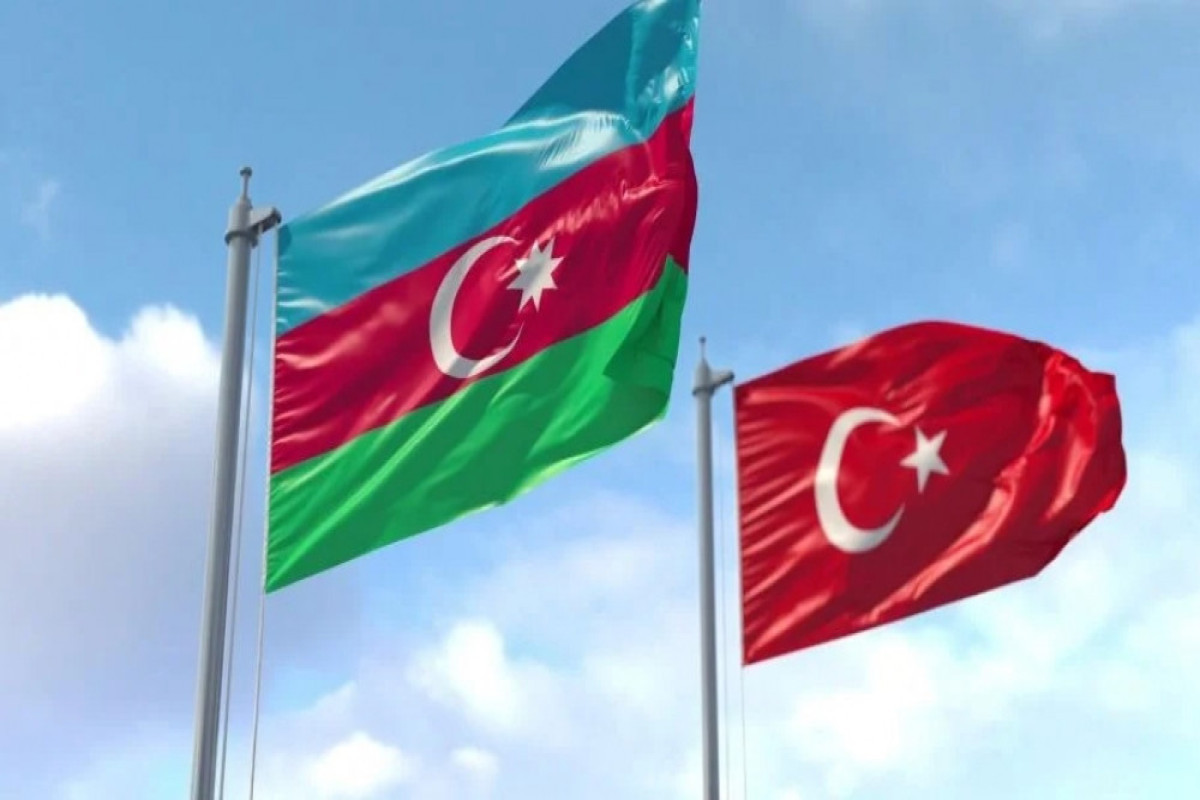"APA-Economics" presents an exclusive interview of Odile Renaud-Basso, president of the European Bank for Reconstruction and Development (EBRD), Azerbaijan's long-term partner in various projects, before her visit to Azerbaijan:
-How did the Russian-Ukrainian conflict affect the EBRD's plans? For example, it often comes across to me that the EBRD will finance the development of some areas in Ukraine. So, are there any changes between your pre-war investment plans and your current plans? Has the bank made any corrections in its long-term plans regarding Eastern Europe and the South Caucasus in general, along with Ukraine, due to the impact of the war, and what are these corrections?
-We are supporting Ukraine and its real economy when the country needs it most, in the here and now. Now is also the time for preparing for the reconstruction and recovery which will surely follow this disastrous war. But we should be ready for the current conflict to last many more months – and perhaps even longer. We launched our resilience and livelihoods program for Ukraine and affected countries by the crisis and intended to undertake at least €1 billion of activity in Ukraine itself this year, in cooperation with donors and other partners.
-But the war has not changed our commitment to Eastern Europe and the Caucasus, where we believe our trademark business model of investment combined with policy engagement and technical cooperation can continue to deliver real change in the region.
-That said, our business model, particularly the support we enjoy from our shareholders and donors, allows us to behave as a ‘counter-cyclical’ bank. In other words, in times of recession and crisis, instead of retrenching, we are usually able to expand our activity. This was very much the case at the end of the first decade of this century during the financial crisis. It was also true of our performance when the pandemic struck. And, again, thanks to the understanding we have reached with many of our shareholders and our close relationship with our clients and partners on the ground, we have also been able to respond to the war with a large program of support for Ukraine and other countries affected by the conflict.
-At the same time, we are a business too and feel the effects of rising prices and especially economic costs on our operations. We are doing what we can to mitigate their impact.
-In the Caucasus, the economic growth has indeed been higher than expected due to unexpected short-term factors, including soaring energy prices, higher net inflow of money transfers from Russia, and higher than expected income generated from tourism. But we will be focusing on ensuring the medium and long-term resilience of these economies by supporting local financial institutions, small and medium-sized enterprises, sustainable infrastructure, and investments in renewable energy.
-If we look at the EBRD's portfolio in Azerbaijan, the latest figures suggest that the Bank is focusing more on sustainable infrastructure investments (89% of the total portfolio or 748 million dollars belongs to this field). The current geopolitical and geo-economic situation has revealed the necessity of developing the Middle Corridor passing through Azerbaijan. How will this shape the EBRD's investments in Azerbaijan and the South Caucasus? How exactly does the EBRD plan to support the development of this corridor?
-We see that international carriers are increasingly looking to diversify their transit routes, with demand for transport through the middle corridor increasing significantly. EBRD is actively supporting its clients, private or sovereign, involved in linking Central Asia to the Caucasus. Be it a storage facility near Baku, port infrastructure in Georgia, or railways in Kazakhstan.
-Recently, EBRD financed a 5,000-tonne storage facility in Azerbaijan to boost the country’s transit capacity. On the other side of the Caspian, the Bank recently committed to invest up to the US $100 million in Kazakhstan railways, including for modernization of railway freight routes. We are also currently exploring the opportunities to boost Azerbaijan’s port infrastructure within the framework of the EU Flagship Initiatives.
-The main difficulties caused by the Russian-Ukrainian war are related to the energy and food crises. What investments does the EBRD make and plan to overcome these difficulties? As a continuation of the question, I would like to mention that one of the main problems in the food sector in Azerbaijan, especially wheat consumption, is strongly dependent on imports. What can be the role of the EBRD in the elimination of this dependence and the development of agriculture in Azerbaijan?
-The country has strong potential in agribusiness thanks to its variety of excellent crops. But difficulties in accessing long-term, reliable, and affordable finance, especially for firms in remote areas or with no real estate collateral, are holding the sector back. Regional wheat importers, including Azerbaijan, will have to adjust to new realities caused by the war by improving in-country wheat production and import diversification.
-The EBRD maintains a strong focus on Azerbaijan’s agricultural sector. The Bank has provided financing to various agribusiness firms in the country. To strengthen their access to finance, we teamed up with the Frankfurt School of Finance and Management and, with support from the EU, developed the Azerbaijan Agriculture Loan Evaluation System (AzALES), which covers all commercially viable crops and helps lenders to assess risk more effectively, facilitating easier and faster access to finance for private farms. We stand ready to continue our financial and technical support to Azerbaijan’s agricultural sector.
-One of the main goals of the EBRD is to accelerate the transition to clean energy. In this regard, the Bank also implements projects in Azerbaijan. As a pilot, EBRD is implementing projects related to the transition to green energy in Ganja, the second largest city in Azerbaijan. What other regions can be invested in projects next in this field? What are the prospects of renewable energy in Azerbaijan, and what are the challenges in this field?
-During my visit next week, I will be signing an agreement aimed at improving Ganja’s street-lighting infrastructure. For more than 300,000 residents of Ganja, this will mean substantial energy-efficiency gains, better road safety, and greater levels of perceived security. The project follows a previous investment in improving Ganja’s solid-waste collection infrastructure.
-We really hope that this will be one of the many investments in Azerbaijan’s green infrastructure. As for in which regions, we will assess investment opportunities on a project-by-project basis.
-In terms of renewable energy, we understand that for Azerbaijan, opportunity costs for using fossil fuel domestically have become even greater, increasing the relative attractiveness of renewables. Through our investment and policy support, we are removing bottlenecks for the private sector in deploying renewable energy.
-Recently, we invested €21.4 million in the first privately owned, utility-scale solar power plant in Garadagh. We are also set to invest in first of its kind wind power plant on the Absheron peninsula.
-At the policy level, we recently helped the Ministry of Energy to develop a renewable energy framework, including an energy regulator and renewable energy auctions. We also helped the ministry to conduct a grid-strengthening study. We now stand ready to invest in grid improvements across Azerbaijan, which is a precondition for further development of the renewable energy sector.
-Speaking of environmentally clean energy, one of the main problems in Azerbaijan is the old car park, which results in high carbon emissions. Does the EBRD have plans to replace fossil fuel vehicles with electric cars in Azerbaijan and the region and to develop this infrastructure in Azerbaijan?
-Across our countries of operations, we have experience in financing the upgrade towards greener municipal transport, including electric buses. Potentially, this could be done in Azerbaijan as well.
- With Azerbaijan liberating its lands from occupation, new realities have emerged in the region. Armenia and Azerbaijan have come closer to peace. Can the EBRD somehow support the establishment of economic relations between the two countries, especially the strengthening of transport relations? What is the approach of the EBRD in this regard?
-Safeguarding peace is very important. We call on all parties to settle their differences peacefully and in accordance with international norms. This would be in the interests of all.
-Transport relations are an issue that needs to be discussed between Azerbaijan and Armenia, and once resolved, we could consider supporting both sides in resolving relevant infrastructural challenges.
-Azerbaijan is already starting the construction of new settlements and restoration of old settlements in Karabakh. This is planned to accommodate the population and increase economic activity. Can ERBD support in some way the employment of the population to be settled there and the development of the business?
-We would need to apply a project-by-project approach in close cooperation with fellow international financial institutions. We understand that the de-mining of the territories is still ongoing. Therefore, this would also be subject to safe access to project sites.


